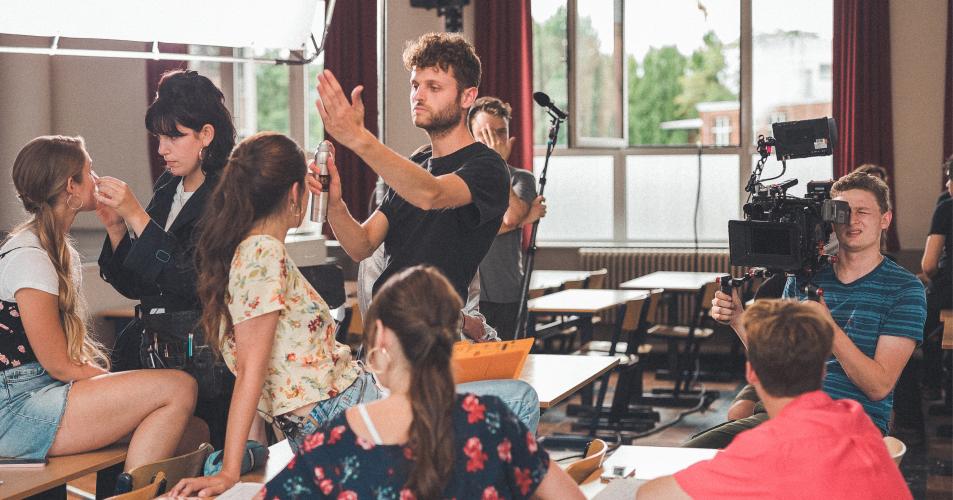About

Numerous well-known Belgian film-, animation film- and television-makers, radio- and documentary-makers, writers, stage actors and stage directors over the last half-century have one thing in common: they all studied at the same school, the RITCS - Royal Institute for Theatre, Cinema & Sound - a School of Arts of the Erasmus University College Brussels.
Although some parts of the theoretical course in philosophy, culture, art, politics, media and society, providing a broader education, are taught in lectures by leading academics for larger groups of a hundred students, most parts of the course operate in ways that assume dialogue between the students and their artistic teachers, many of whom are celebrated artists, and collaboration amongst the students themselves: from tutorials and workshops to studio sessions and master-classes.
The main focus at the RITCS is the development of one’s own artistic path, through which the student seeks his own idiom, style and themes. This quest lies at the heart of the artistic research for which one acquires the necessary skills on every course at the RITCS. Close cooperation with professional associations in the audiovisual field within Belgium are a great advantage to our students on their path of becoming young professional artists: VAF (Flemish Audiovisual Fund), Scenaristengilde (Screenwriters), Unie van Regisseurs (Directors), de Auteurs (legal royalties).
The mission statement of RITCS defines its tasks in an international perspective. The framework for the international policy is the knowledge triangle: education, (applied) research and innovation. So, RITCS supports strongly international cooperation in education and research, and is for this reason member of several European networks, of which GEECT & CILECT, ELIA, OISTAT.
RITCS pays special attention to students with specific needs and to equal opportunities for all. RITCS collaborates closely in policy making and community based projects, with the support of diverse NGOs focusing for instance on the intercultural dimension of curricula or on innovative and interdisciplinary teaching methodologies.
The internationalization policy at RITCS is based on humanistic principles and condemns any discrimination on the basis of ethnic or geographical origin, disability, gender or sexual preference, religion or social origin, political or philosophical conviction.
Follow RITCS
Please note that our English website will be updated soon. Thank you for your comprehension.